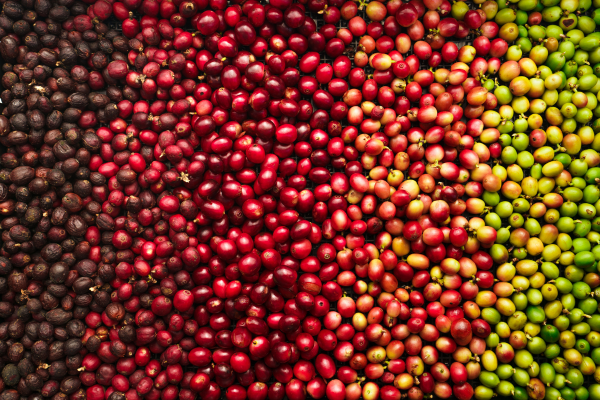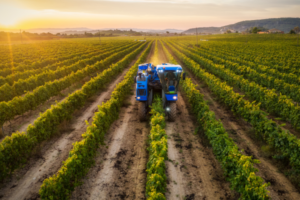Coffee has become an integral part of many people’s daily lives around the world. It is a beloved beverage that transcends borders and cultures, enjoyed by millions for its rich aroma and stimulating properties. While coffee has a long and storied history, the emergence of specialty coffee has taken the coffee industry to new heights. In this article, we will delve into the origins of specialty coffee, tracing its roots from small farms to the prominent cafés that now serve it.
The Rise of Coffee Cultivation
Coffee’s journey as a popular beverage began centuries ago in the highlands of Ethiopia. Legend has it that a goatherd named Kaldi discovered the stimulating properties of coffee when his goats became unusually energetic after consuming the red cherries from a particular tree. Intrigued, Kaldi tried the cherries himself and felt a newfound sense of alertness.
The cultivation of coffee spread across the Arabian Peninsula, with coffeehouses becoming centers of intellectual and social exchange in the Middle East. By the 15th century, coffee had reached Persia, Egypt, and the Ottoman Empire, captivating the taste buds of many. However, it wasn’t until the 17th century that coffeehouses began to emerge in Europe, introducing the beverage to the Western world.
The Birth of Specialty Coffee
The term “specialty coffee” refers to beans that have been carefully grown, processed, and brewed to emphasize their unique flavors and characteristics. The origins of specialty coffee can be traced back to the early 20th century when coffee enthusiasts started to take a more discerning approach to the coffee they consumed.
In the 1960s, a movement emerged in the United States that sought to elevate the coffee experience beyond the mass-produced and often mediocre brews that dominated the market. This movement sought out high-quality, single-origin beans and developed lighter roasting profiles to showcase the beans’ distinct flavors. It also emphasized fair trade practices and sustainable sourcing, paving the way for a more ethical coffee industry.
Small Farms and Sustainable Practices
One of the cornerstones of specialty coffee is its emphasis on small farms and sustainable farming practices. Unlike large-scale coffee plantations, small farms cultivate coffee with greater attention to detail and care for the environment. These farms often grow coffee under shade trees, which not only provides a favorable habitat for migratory birds but also protects the coffee plants from harsh sunlight.
Furthermore, many specialty coffee farms adopt organic and regenerative farming techniques, avoiding the use of harmful pesticides and chemicals. This approach not only produces better-tasting coffee but also promotes the health of the soil and surrounding ecosystems.
The Role of Coffee Roasters
Roasting is a crucial step in the coffee-making process that significantly impacts the final flavor of the beans. Specialty coffee roasters are skilled artisans who carefully roast coffee in small batches to bring out the unique characteristics of each bean.
These roasters invest time and effort into sourcing the finest green coffee beans from different regions, often forming direct relationships with small farmers and cooperatives. By working closely with farmers, they can ensure that ethical and sustainable practices are followed, and they can obtain exclusive access to exceptional coffee lots.
Cafés as Purveyors of Specialty Coffee
The specialty coffee movement owes much of its success to cafés that have embraced the concept wholeheartedly. These cafés serve as the bridge between discerning coffee enthusiasts and the exceptional coffee produced on small farms.
Leading cafés take pride in training their baristas to understand the nuances of different coffee origins, processing methods, and brewing techniques. They invest in top-notch coffee brewing equipment and follow precise brewing parameters to extract the best flavors from the beans.
The Global Impact of Specialty Coffee
The rise of specialty coffee has had a profound impact on coffee-producing regions worldwide. As demand for high-quality beans continues to grow, small farmers who adopt sustainable practices are recognized and rewarded for their efforts. This, in turn, encourages others to follow suit, leading to the overall improvement of coffee farming communities.
Moreover, specialty coffee has created new economic opportunities in these regions, empowering farmers and encouraging the preservation of traditional coffee cultivation methods. It has also provided consumers with a richer coffee experience, where every cup tells a story of origin and craftsmanship.
Conclusion
From its humble origins in Ethiopia to its now global presence, coffee has come a long way. The specialty coffee movement has taken the appreciation of this beloved beverage to new heights, highlighting the craftsmanship of small farmers and roasters and the expertise of dedicated baristas. By embracing sustainability, ethical sourcing, and fair trade practices, specialty coffee has not only elevated the coffee experience but also positively impacted coffee-growing communities around the world. So, the next time you take a sip of your favorite specialty coffee, remember the journey it undertook – from small farms to the café you now enjoy it in.



